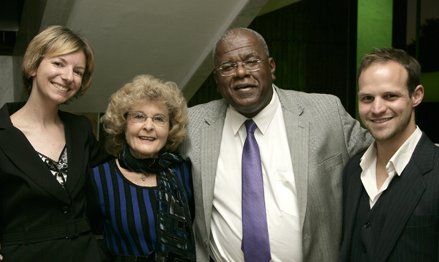Latest News Archive
Please select Category, Year, and then Month to display items
![]()
The University of the Free State (UFS) has an enrolment plan for 2007–2019 that was approved by the Department of Higher Education and Training (DHET). The university is compelled to adhere to these enrolment targets, as over-enrolment poses a risk to the academic integrity, financial sustainability, and student success of the university.
The UFS received 47 000 applications for admission in 2018, of which 17 000 applicants received final admission. All admission letters clearly stipulate that admission is subject to availability of space during registration. The enrolment target for new first-time entering students for 2018 is 8 000, therefore only 8 000 students can be registered across the university’s three campuses during this intake period.
The Executive Management of the UFS welcomes the fact that President Jacob Zuma’s announcement on 16 December 2017 about free education for the poor and working class has allowed many more students the opportunity to register. Several meetings between the Executive Management and the Student Representative Council (SRC) have taken place since the beginning of 2018 to discuss the implications of the President’s announcement. Engagement with the SRC regarding the registration process is also continuously taking place.
Online registration for all students opened on 8 January 2018. The UFS has put several measures in place to assist new first-time entering undergraduate students. Furthermore, students who have moved into residences and participated in the university’s Gateway Programme, as well as students who arrived on campus, were assisted to register for programmes with available space. In cases where the first option of study was full, students were redirected to other programmes with available space within the specific faculty or other faculties, provided that they comply with the relevant admission criteria. Only mainstream programmes in the Faculty of Economic and Management Sciences now have space left. The rest of the undergraduate programmes in all faculties on all the campuses are full.
Students who could not be accommodated in any of the programmes due to limited space are being directed to the Central Application Clearing House (CACH).
'England, the English and the problem of education in South Africa.’
2013-09-26
|
 |
Attending the lecture were, from the left: Dr Susan Brokensha, Senior Lecturer: Department of English; Prof Rosemary Gray, Professor Emeritus (Honorary Life Vice-President of the English Academy of Southern Africa); Prof Jonathan Jansen; and Dr Thinus Conradie, Lecturer: Department of English.
Photo: Johan Roux
26 September 2013 |
Prof Jonathan Jansen: Lecture
The university celebrated the life of one of South Africa's most renowned art critics, hosting the 2013 English Academy’s Percy Baneshik Memorial Lecture on the Bloemfontein Campus.
The keynote lecture was delivered by Prof Jonathan Jansen, Vice-Chancellor and Rector, who joined a distinguished list of speakers to have delivered the lecture. Presented annually by the English Academy of Southern Africa, an association dedicated to promoting the effective use of English as a dynamic language in Southern Africa, past speakers include Prof Es’kia Mphahlele, Prof Njabulo Ndebele, Dr Alan Paton and Prof Albie Sachs. The lecture is hosted at venues across the country and this year Bloemfontein paid tribute to Percy Baneshik.
In his speech Not even colonial born: England, the English and the problem of education in South Africa,' Prof Jansen addressed the dilemma of the politics of language in both school and university education today.
Talking about the dominance of English in schools, Prof Jansen said it is the language of choice because indigenous languages are so poorly taught. "Simply learning in your mother tongue is absolutely no guarantee of improved learning gains in school. The problem is not the language of instruction; it is the quality of teaching, the knowledge of curriculum and the stability of the school."
Prof Jansen told the audience in the CR Swart Hall that Afrikaans-exclusive, or even Afrikaans-dominant white schools represent a serious threat to race relations in South Africa. "You simply cannot prepare young people for dealing with the scars of our violent past without creating optimal opportunities in the educational environment for living and learning together."